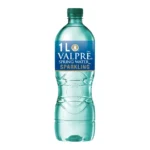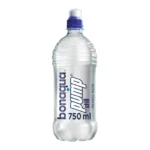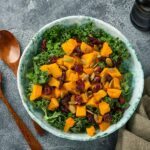With the increasing popularity of vegetarianism and its various subtypes, ovo-vegetarianism has emerged as a dietary choice for many individuals. Ovo-vegetarians follow a plant-based diet that includes eggs but excludes other animal products, such as meat, poultry, fish, and dairy. While this dietary pattern offers numerous health and environmental benefits, it is essential to ensure that ovo-vegetarians meet their nutritional needs to maintain optimal health. In this article, we will explore the key nutrients to consider and provide practical tips for meeting them on an ovo-vegetarian diet.
Protein: Protein is a crucial macronutrient for building and repairing tissues, supporting immune function, and maintaining overall health. Ovo-vegetarians can obtain high-quality protein from eggs, which are considered a complete protein source, containing all essential amino acids. Including a variety of eggs in your diet, such as boiled, scrambled, or poached, can provide a sufficient protein intake. Additionally, incorporating plant-based protein sources like legumes, tofu, tempeh, seitan, and edamame can further enhance protein diversity.
Iron: Iron is necessary for the formation of red blood cells and plays a vital role in transporting oxygen throughout the body. Ovo-vegetarians should ensure an adequate intake of iron, as the form of iron found in plant-based foods (non-heme iron) is less readily absorbed than the iron found in animal products (heme iron). However, combining non-heme iron sources with foods rich in vitamin C, like citrus fruits, tomatoes, or bell peppers, can significantly enhance iron absorption. Good sources of iron for ovo-vegetarians include eggs, legumes, fortified breakfast cereals, whole grains, nuts, and seeds.
Calcium: Calcium is essential for maintaining strong bones and teeth, as well as supporting proper muscle and nerve function. While dairy products are a common source of calcium, ovo-vegetarians exclude them from their diet. However, there are numerous plant-based alternatives available, including calcium-fortified plant milks (such as almond, soy, or oat milk), tofu prepared with calcium salts, calcium-set tofu, sesame seeds, tahini, and leafy greens like kale, collard greens, and broccoli. Ensuring adequate vitamin D intake is also crucial for calcium absorption, so consider spending time outdoors or consuming fortified foods.
Vitamin B12: Vitamin B12 is primarily found in animal-based foods, and ovo-vegetarians may be at risk of deficiency as they exclude dairy and other animal products. Vitamin B12 is essential for the formation of red blood cells and the maintenance of a healthy nervous system. To meet their B12 needs, ovo-vegetarians can rely on eggs, which contain small amounts of this vitamin. However, it is recommended to monitor vitamin B12 levels regularly and consider a B12 supplement or fortified foods if necessary.
Omega-3 Fatty Acids: Omega-3 fatty acids are crucial for heart health, brain function, and reducing inflammation in the body. While fish is a common source of these essential fats, ovo-vegetarians can obtain omega-3s from plant-based sources such as chia seeds, flaxseeds, walnuts, and hemp seeds. These foods provide alpha-linolenic acid (ALA), a type of omega-3 fatty acid that can be converted to the active forms (EPA and DHA) in the body, although the conversion rate is limited. Including a variety of these plant-based sources in your diet can help ensure sufficient intake.
In addition to these key nutrients, ovo-vegetarians should focus on consuming a wide range of fruits, vegetables, whole grains, legumes, nuts, and seeds to obtain a diverse array of vitamins, minerals, and antioxidants. It is also important to pay attention to portion sizes and overall caloric intake to maintain a balanced diet and prevent deficiencies.
Consulting with a registered dietitian who specialises in vegetarian or plant-based nutrition can be highly beneficial for ovo-vegetarians. They can provide personalised guidance, help identify potential nutrient gaps, and assist in creating a well-rounded meal plan that meets individual needs.
In conclusion, an ovo-vegetarian diet can provide adequate nutrition when carefully planned. By including a variety of protein sources, iron-rich foods paired with vitamin C sources, calcium alternatives, vitamin B12 fortified foods or supplements, and plant-based omega-3 sources, ovo-vegetarians can thrive on their chosen dietary path while meeting their nutritional needs for optimal health.








